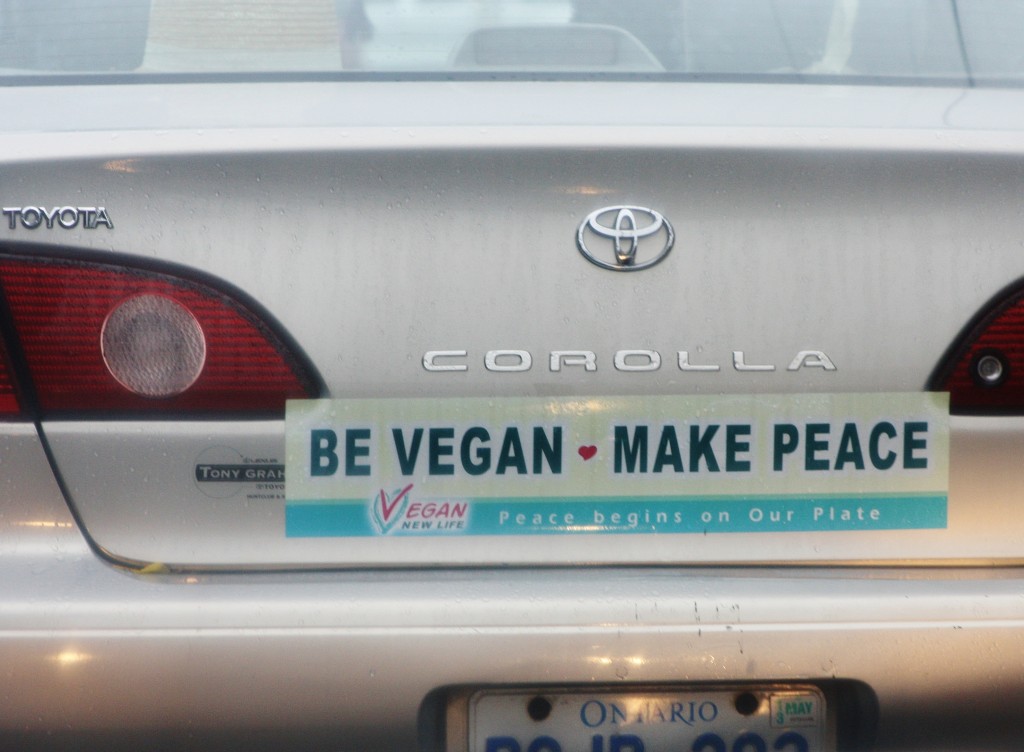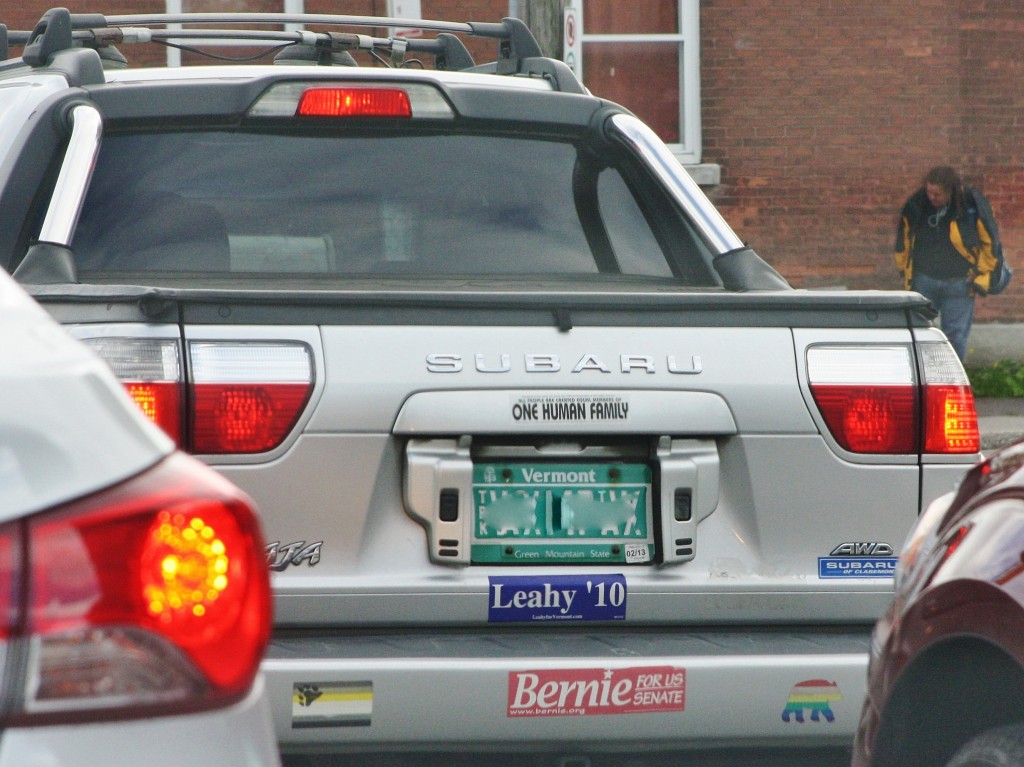I hate bumper stickers with a passion, but I’m not sure why.
As someone who considers themselves an individualist, why wouldn’t I like seeing a visual expression of personal beliefs plastered onto an automobile? Individualism! Cars! Expression! Bliss!
No dice. I despise them even more than finding an errant hair in my meal.
The reasons could be many. Much like with Facebook, I really don’t like knowing so much about a random stranger with whom I’ve never spoken. I don’t care about their beliefs, and I certainly don’t want to be told anything by them (or their car).
Preachiness isn’t a trait I find pleasing, nor do I like a car’s paint and lines (if it has any) being sullied by a tiny, sticky plastic billboard.
Thankfully for me, ‘peak bumper sticker’ seems to be long past. You just don’t see it much anymore – a few Jesus and Darwin fishes here and there, a rainbow flag, and maybe a American voting decision from 6 years ago.
What started out in the 60s and 70s as a loud and proud “Hear me roar!” has declined to an almost apologetic “May I please have a word…?”
Of course, motorists who are real zealots for one cause or another can still make their beliefs readily known through their car’s exterior, and a few dedicated souls still do. It’s just too bad they’re so often affixed to the back of cars, rather than the side.
Bad for tailing motorists, but even worse for unsuspecting hitchhikers.
Sharing the roadway with other motorists isn’t exactly a chummy, get-to-know-everyone experience, but there is an element of (often minimal) social interaction, as well as emotional reactions. With driving sometimes serving to bring out the worst in people, bumper stickers can be a good way to confirm whether the stereotypes associated with people who subscribe to certain beliefs have any validity.
When faced with the likes of the stereotypical Vermont Subaru driver seen above (the olive-green, diesel Volvo wagon must have been in the shop that day), we automatically conclude the driver is a placid, windbreaker-wearing tenured professor who would brake hard and risk injury to avoid a small snail crossing the road. Naturally, underneath the spare tire, next to the old draft papers from ‘Nam, is his stash.
In an odd twist, however, a scientific study by Colorado State University psychologist William Szlemko in 2008 concluded that people with bumper stickers on their cars – regardless of their politics, individual beliefs or interests – were more prone to aggressive driving and road rage than their stickerless counterparts.
Consider the findings of that study the next time you’re driving near this guy…


